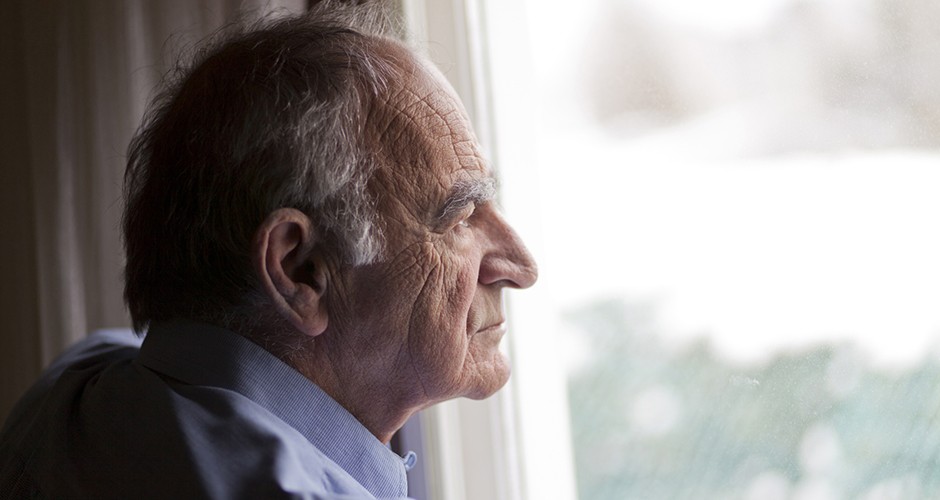Loneliness is serious. In fact, it’s so serious that it can lead to an early death.
Extensive research is uncovering more and more health risks.
It’s already well known that smoking, obesity and environmental factors can cause an early demise. Loneliness, however, is a relative newcomer to the field of potentially fatal conditions. Often high blood pressure or diabetes are referred to as “silent killers.” Loneliness and social isolation would also fit into that category.
A study led by researchers in the Penn State College of Health and Human Development and Center for Healthy Aging found that the long-term health consequences of loneliness and insufficient social connection has been linked to an increased risk of heart disease and stroke, and an increased risk of dementia in older adults.
During a University of Chicago study, researchers compared a sample of people who were described as lonely to a sample of individuals who had solid social and familial connections.
The study found:
- Living alone increases the risk of suicide. Isolation brings about stress, anxiety and depression. In some cases, even alcoholism. All of those are triggers for suicide.
- Lonely individuals report higher stress levels. Even when they’re relaxing, lonely people say they feel the pressure of the world on them.
- The social interactions that lonely people do have aren’t as positive as those of other people. The quality of the relationships that they do have don’t provide relief from the stress of being lonely and isolated.
- Loneliness raises stress hormone levels. This causes an imbalance in the circulatory system so the heart has to work harder.
- Loneliness hinders quality of sleep. Isolated individuals wake up more often during the night and spend more time in bed not sleeping.
Studies like those, and many others, highlight that loneliness is not just a psychological condition. It has very real physical consequences.
While loneliness isn’t a chronic illness that will directly cause death, a lack of social connections can lead to serious health risks that result in death.
In 2023, the U.S. Surgeon General issued a warning about the public health crisis of loneliness and laid out a framework for the United States to establish a National Strategy to Advance Social Connection.
Signs and symptoms of loneliness can vary from person to person. Some people can be around other people and still feel alone.
Some warning signs of loneliness:
- Healthy routines or habits can start decreasing
- Possible increased feelings of anxiety and depression
- Feeling increasingly tired with little energy and a change in focus
- Decreased interactions and avoidance of social events with others
- Physical effects, such as an increase in headaches, body aches and sleep problems
- Mood changes and increased withdrawal
What to do if you recognize the signs in yourself or your loved ones:
- Talk to your family and your friends about how you are feeling.
- Seek help from a medical professional, counselor or therapist.
- Reach out for community support from a local church, support groups, senior centers or community centers.
- Talk to other seniors, neighbors or peers.
- Establish weekly calls and communication with family and friends.
- Set a goal or establish weekly routines to increase engagement and interactions.
- Pursue a new interest, activity or hobby. A senior center, church or community center can be good places to start. Invite friends and neighbors to participate with you. New hobbies and activities can include book clubs, coffee groups, painting and craft groups and Bible study or prayer groups.
- Become a volunteer or participate in community events at organizations like the Humane Society, veteran’s groups, schools, churches, the local food shelf or library to help find a sense of purpose.
- Make the move to an independent senior living community.
“Everyone has a need for companionship and interactions regardless of demographic, age, culture or race,” says Debbra Petersen, recreation wellbeing consultant for the Good Samaritan Society.
Learn ways you and your loved ones can stay social.
“As we age, we experience life changes and go through seasons of loss. This includes retirement or a career change, physical changes with health that can potentially impact interests and hobbies, loss or death of loved ones such as family, friends or pets in our life and adult children moving away,” Debbra says.
Learn ways to navigate the life changes of aging.
“We can see physical changes in others, but it is often difficult to see the psychosocial or emotional changes people may be feeling. Signs and symptoms matter and may indicate something else may be going on,” says Debbra.
Senior living can help combat loneliness
The Good Samaritan Society’s independent senior living options provide a fulfilling life with these benefits for older adults:
- Social and wellness activities
- Friendly neighbors
- Caring staff members
- Pet-friendly buildings
- Meal options in a community dining room
- Gathering spaces for connecting with others
- Vibrant spiritual life programs
Additional resources:
These organizations can also be helpful for those experiencing loneliness:
National Suicide Prevention Lifeline: Call or text 988, TTY: Dial 711 then 988
Veterans Crisis Line: Dial 988 then press 1, or text 838255
Institute on Aging’s Friendship Line (for anyone 60+): (800) 971-0016
Crisis Text Line: text HOME to 741741
Learn the benefits of a senior living community.
Find a location
Source: PNAS
Some of our locations participate in a program called Send a Note.
You can send someone you know a note or even send one to a random resident to brighten their day.
Send a Note


